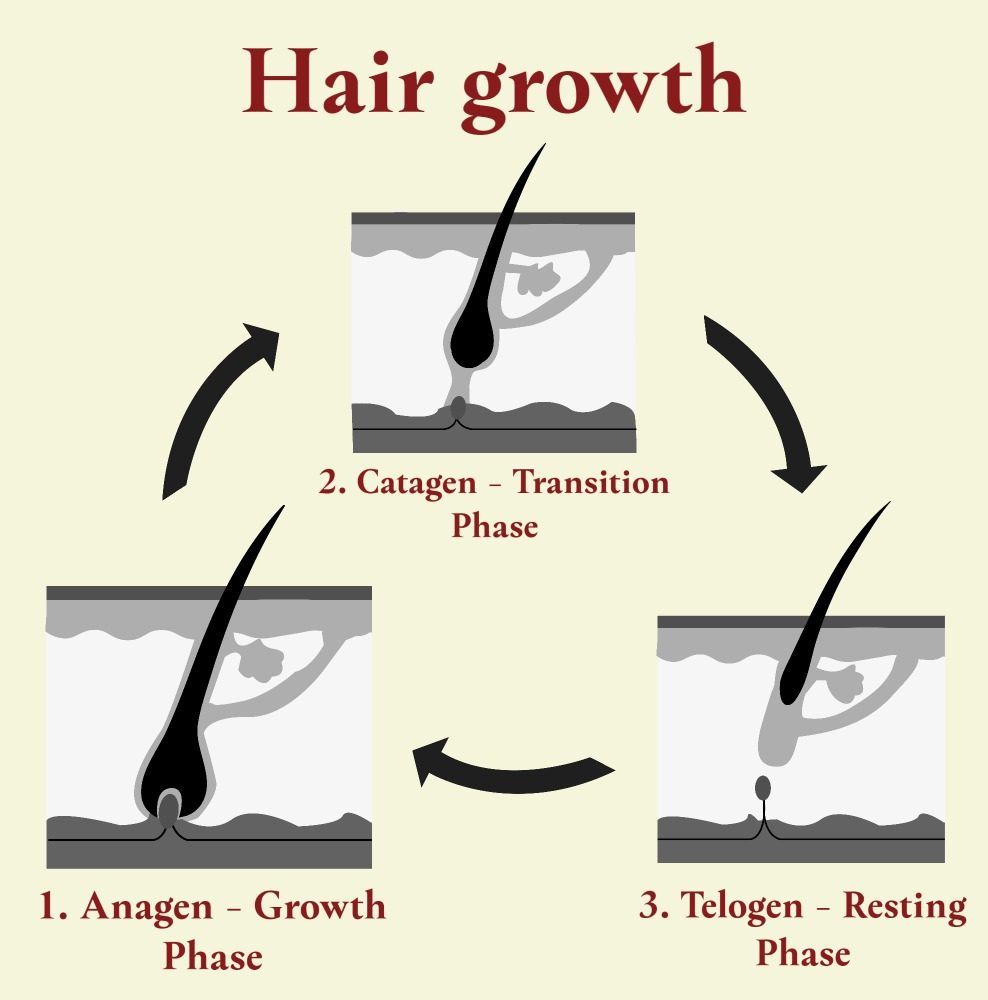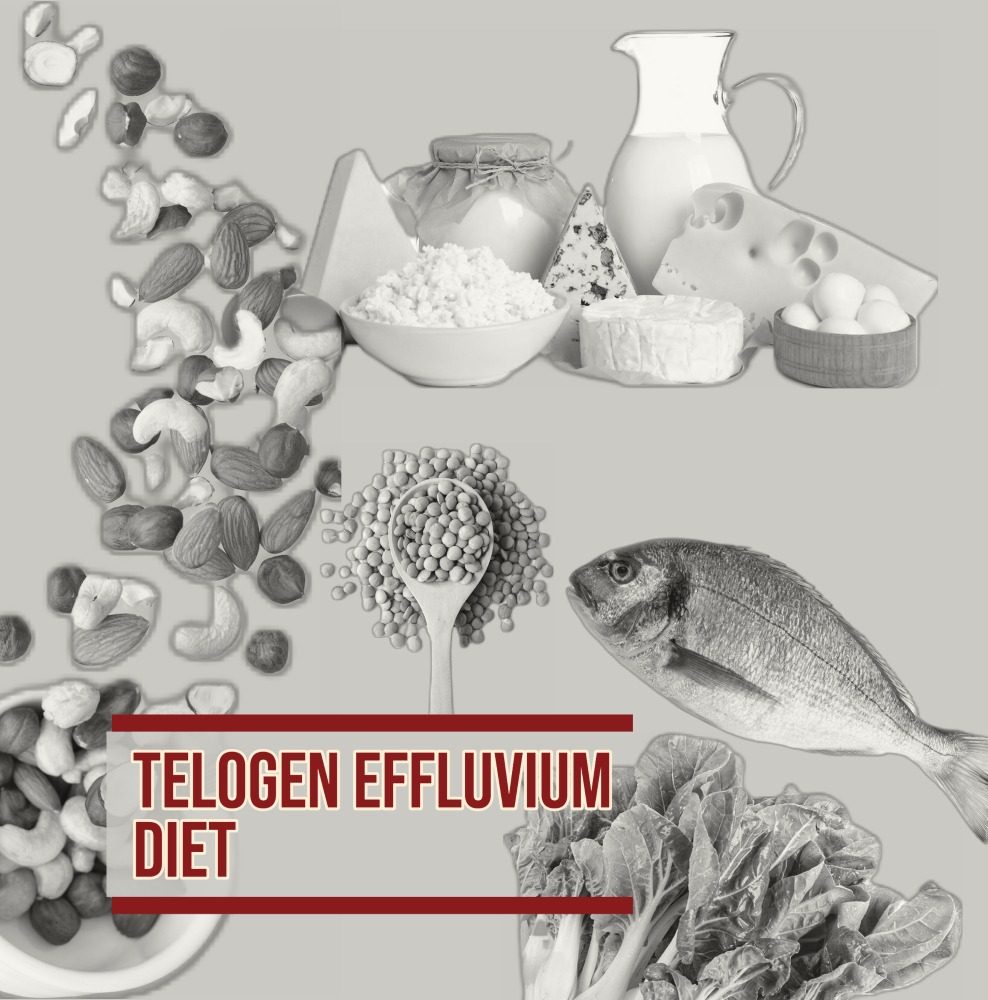What Is Telogen Effluvium?
Telogen Effluvium, or TEF for short, is a form of temporary hair loss that a person might experience months after a traumatic event or stress. Among the common causes are high fevers, childbirth, severe infections, severe chronic illness, severe psychological stress, major surgery or illnesses, over or under-active thyroid gland, crash diets with inadequate protein, and various medications.
This condition is characterized by hair thinning and an increase in hair shedding. Telogen effluvium is usually temporary, lasting for months or years. Hair loss caused by Telogen Effluvium may be temporary or permanent depending on how severe it is. Sometimes scalp inflammation can be caused by stress, dryness, chemical treatments, or other conditions.
Telogen Effluvium Symptoms
Hair loss can occur in telogen effluvium. However, it is reassuring to know this condition is generally reversible. Someone who suffers from this condition does not lose their entire head of hair, though they might notice it becoming thinner. Telogen Effluvia is usually triggered by a disruption to the normal hair growth pattern that typically has three phases – the Anagen (growth) phase, the Catagen (transitional) phase and the Telogen (resting) phase. Telogen Effluvia can occur during any stage of the hair growth cycle, although it is most commonly seen during the telogen phase. In this case, approximately 30 per cent of hair follicles transition into the telogen phase. During this period, hair loss occurs.

The British Association of Dermatologists reveals that rarely, telogen effluvia can be accompanied by tenderness to the scalp, known as Trichodynia. People with this condition experience irritability, depression, anxiety, lack of energy, and restlessness.
Treatment For Telogen Effluvium At CROWN
An accurate diagnosis usually paves the way for choosing the right treatment methods. Treatment for telogen effluvium begins with a diagnosis by examining the scalp with the help of trichoscopy. The diameter and length of the shed hair may also help to differentiate between this condition and alopecia. A hair pull test may help to see if hair shedding is actually excessive and relevant. A blood test may help diagnose certain vitamin deficiencies, iron or ferritin deficiency or thyroid insufficiency. There are treatments available for telogen effluvium.
At CROWN, we don’t believe in just treating the symptoms. Instead, we try to identify and rectify the root cause responsible for Telogen effluvium. Apart from the treatment for the root cause, we help reverse the thinning of hair and reduce the further hair fall.
Medicines for hair form the base of the entire treatment. The patients need to religiously follow the prescribed treatment. Nutritional and lifestyle modifications also need to be incorporated by the patients.
Crown also offers state of the art supportive therapies which may help reverse the telogen effluvium.
Glo PRP ( Platelet rich plasma) equipment is used at CROWN to perform high concentration PRP procedures with a semi-anaerobic kit system. With this, there are no chances of contamination of the blood at any step.PRP is not a USA FDA-approved treatment for hair conditions, but adequate scientific literature and evidence are available which supports it in helping many patients.
Folligro (Non-invasive mesotherapy ) is performed at Crown with an electroporation machine instilling vitamins and minerals directly into the scalp with the phenomenon of Iontophoresis. There are no injections or derma roller needles, hence no pain. It just feels like a head massage session with all the benefits of mesotherapy.

Telogen Effluvium Diet
The recommended diet for telogen effluvium is to include protein-rich foods such as meat, fish, eggs, dairy, beans, liver, green leafy vegetables, quinoa, tofu, cheese, lentils, and nuts, seeds etc. Protein supplies the building blocks for hair growth and regrowing. Including foods rich in iron, like liver and green leafy vegetables, can help alleviate the condition. Supplements can be considered for a short period till the nutritional deficiencies are improved.
Intake of processed foods, sugary drinks, alcohol, smoking, consuming nicotine and caffeine may worsen hair loss. It is also advised to avoid certain types of medication like some oral contraceptives, antidepressants, blood thinners, birth control pills, some antibiotics, antifungal medications, corticosteroids, thyroid hormones, other hormonal therapies, and chemotherapy. If you are on any of the above , kindly inform the doctor regarding the same so that they are replaced by alternate medications.